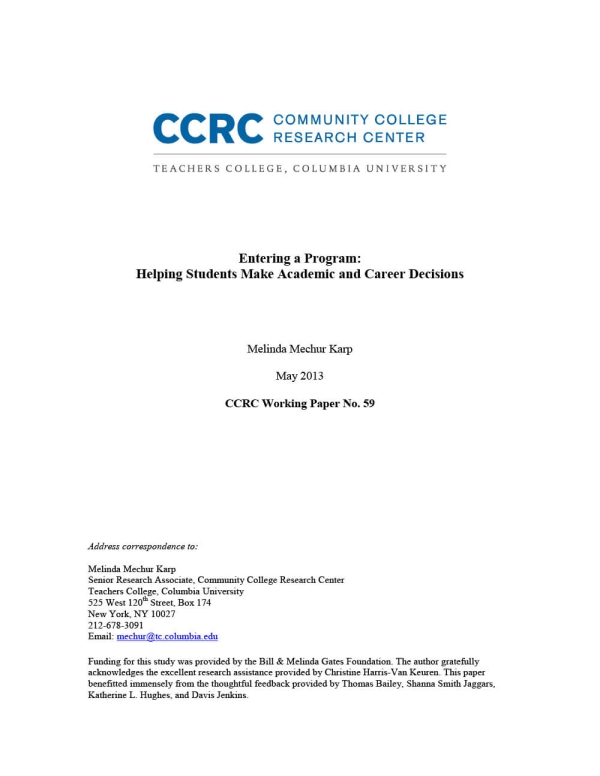
- Program pathways should balance structure with exploration.
- Career counseling should drive an integrated approach to advising.
- Colleges should provide services to students based on their level of need.
- Colleges should strategically deploy resources to allow for developmental advising.
